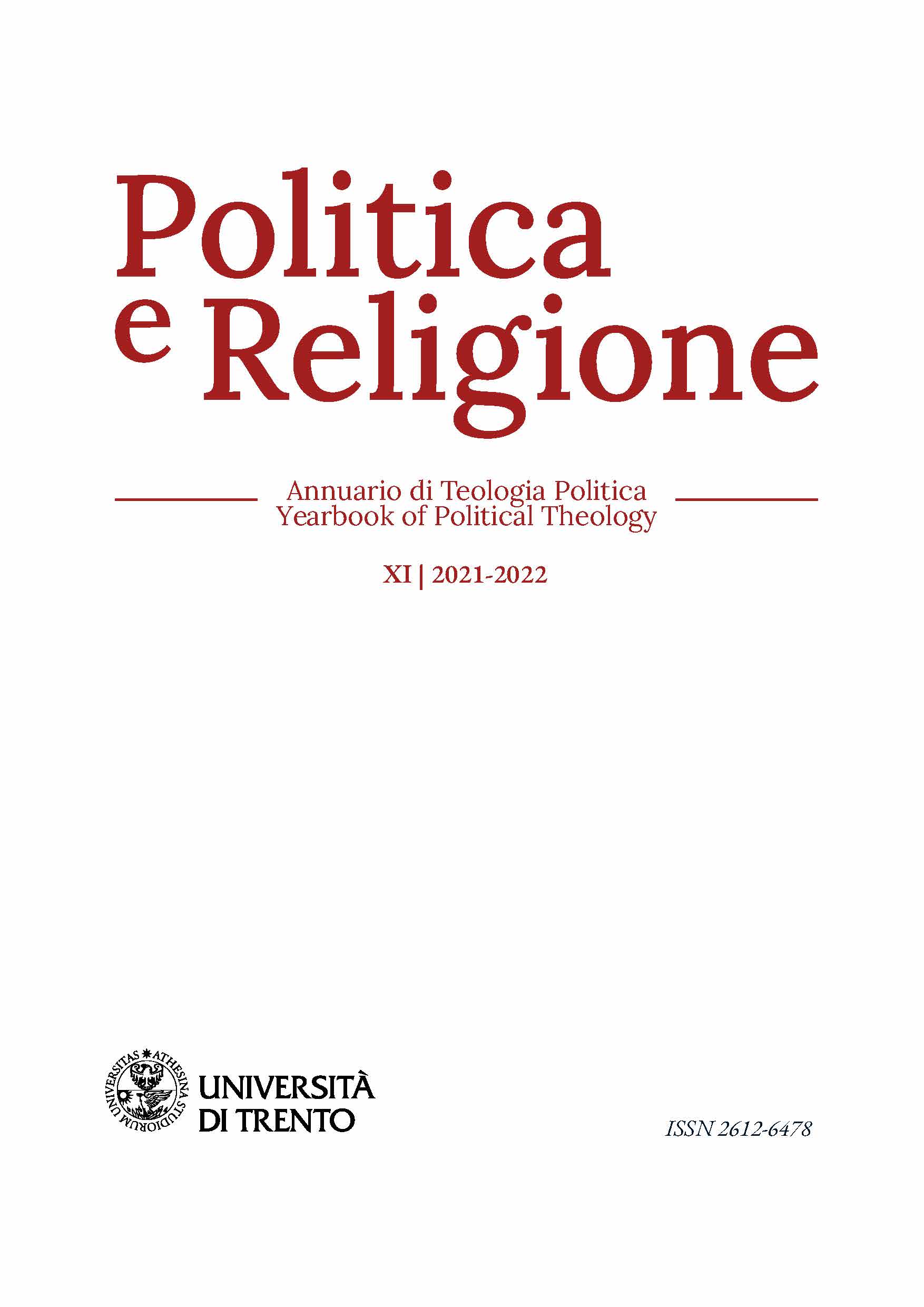Sulla storia del concetto di <em>theologia civilis</em>
DOI:
https://doi.org/10.15168/per.vi2021-2022.3143Abstract
In its Greek origins, the concept of theology is intimately linked to the political dimension, because it is the science of divine things linked to the constitution of the city and to a specific social group that is the bearer of a knowledge and function. From these roots the Roman theologia civilis developed, which is part of the tripartite theology elaborated especially by Varro. The Christian tradition, in particular Augustine, makes a profound critique of civil theology as superstition and attributes its functions to Christian theology as such and to ecclesiastics. In the Middle Ages, the concept of theologia civilis is an antiquarian notion that refers to the Roman world, while a profound mixture of theological and political develops that borrows formulas and concepts from the ancient world applied to the theological and liturgical sphere and vice versa. In the modern age, interest in Roman religion is revived and the theme of theologia civilis and the theological-political is used to indicate the state’s activity in religious matters, but there are also other new meanings such as that offered by Vico in terms of the “science of divine providence” or the “Christian theology of politics”. In the 19th century, the term “political theology” came into use both to denote a traditionalist interpretation of politics linked to a theological derivation of power (Bakunin) and to indicate a Christian theology that was not only speculative but also militant. In the 20th century, it was Carl Schmitt in polemic with Bakunin and Kelsen who wielded the term as a polemical weapon and stimulated contemporary thinking in the theological as well as in the legal and political fields. But even in Schmitt’s version “political theology” appears as a form of knowledge linked to a determined social body.
##submission.downloads##
Pubblicato
Fascicolo
Sezione
Licenza
Copyright (c) 2024 Michele Nicoletti

Questo lavoro è fornito con la licenza Creative Commons Attribuzione - Condividi allo stesso modo 4.0.


